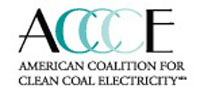The ACCCE PR robots suffered a bit of malfunction recently when attempting to spit out the coal industry’s usual talking points. Researchers at the University of Massachusetts at Amherst released a report last week which discovered that low-income households, and often minorities that encompass the low-income bracket, are disproportionately affected by coal pollution.
The report looked at the distribution of people who live within 3 miles of coal-generating power plants. Residents living within this range are the most likely to suffer negative health effects associated with sulfate and nitric oxide pollution.
Unsurprisingly, most of the people living in this zone are low-income or people of color. So how did the American Coalition for Clean Coal Electricity PR bots respond?
JOBS!! ENERGY COSTS!!
“Shutting down coal plants would increase energy costs and destroy jobs and this would be especially devastating to family budgets,” said Lisa Camooso Miller (VP of Media Relations at ACCCE). “We know that energy costs have skyrocketed in recent years and have disproportionately hurt black and Hispanic households.”
You know what other costs are devastating to family budgets? Insurance costs and medical bills.
Low-income families near coal plants often have to pay for illnesses associated with coal pollution. These can include many respiratory ailments which become chronic, heart disease, and cancer. Also, because children are more susceptible than adults, that means families will be paying doctor’s bills for years to come.
From the report, entitled “Coal Blooded: Putting Profits Before People” [PDF], coal plants were given a “failing” grade if their energy output impact was less than the impact of the pollution. For example, 75 plants only produced 8% of the electricity, yet produced 14% & 13% of sulfur dioxide and nitric oxide, respectively.
And jobs? There’s no denying coal-related work still dominates areas like West Virginia, but new clean energy jobs may be on the horizon.
Out of work miners are finding work installing solar panels in Appalachia, and the business is growing.
If only we could find the mute button on those PR robots at ACCCE.
Subscribe to our newsletter
Stay up to date with DeSmog news and alerts







